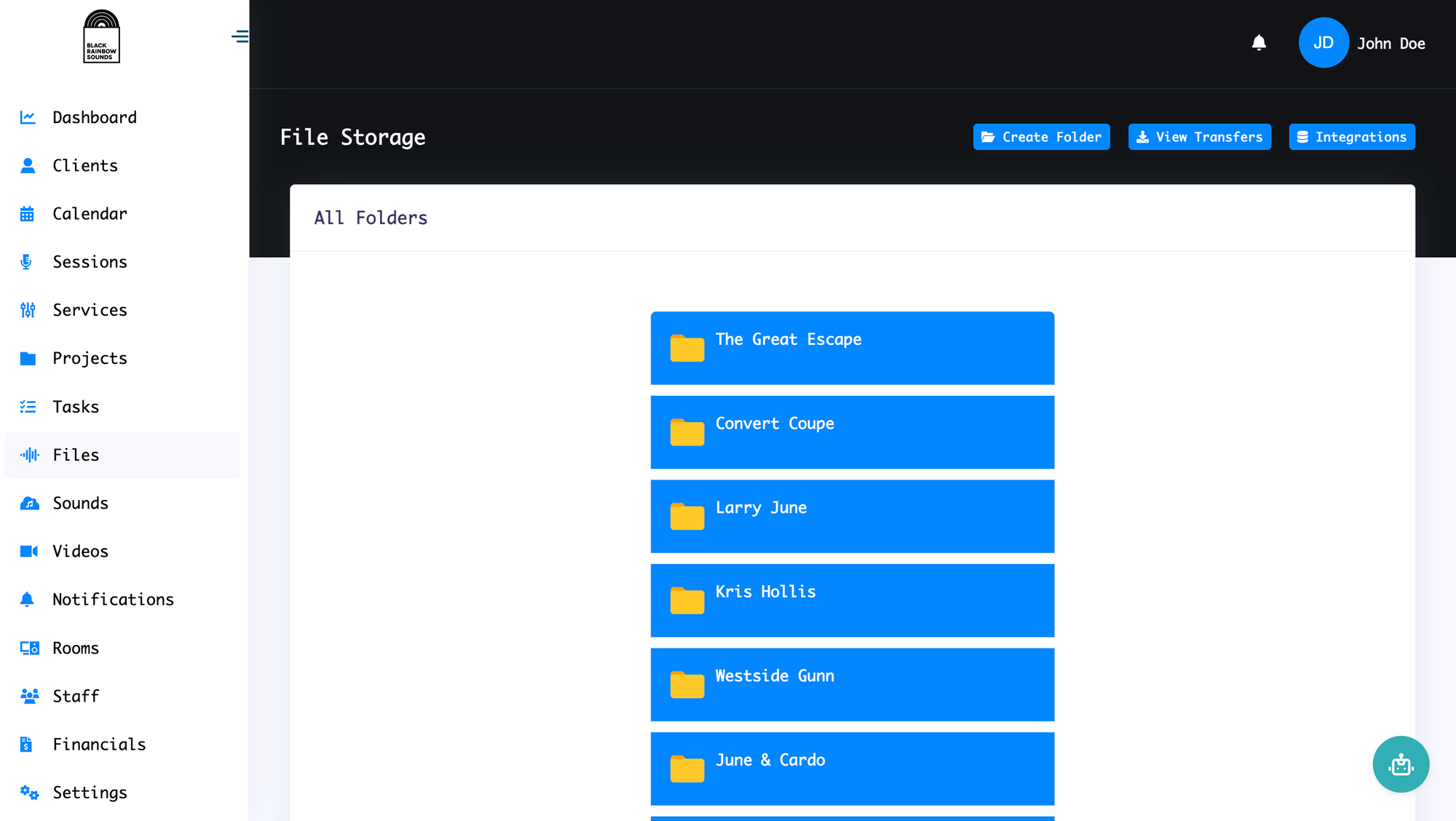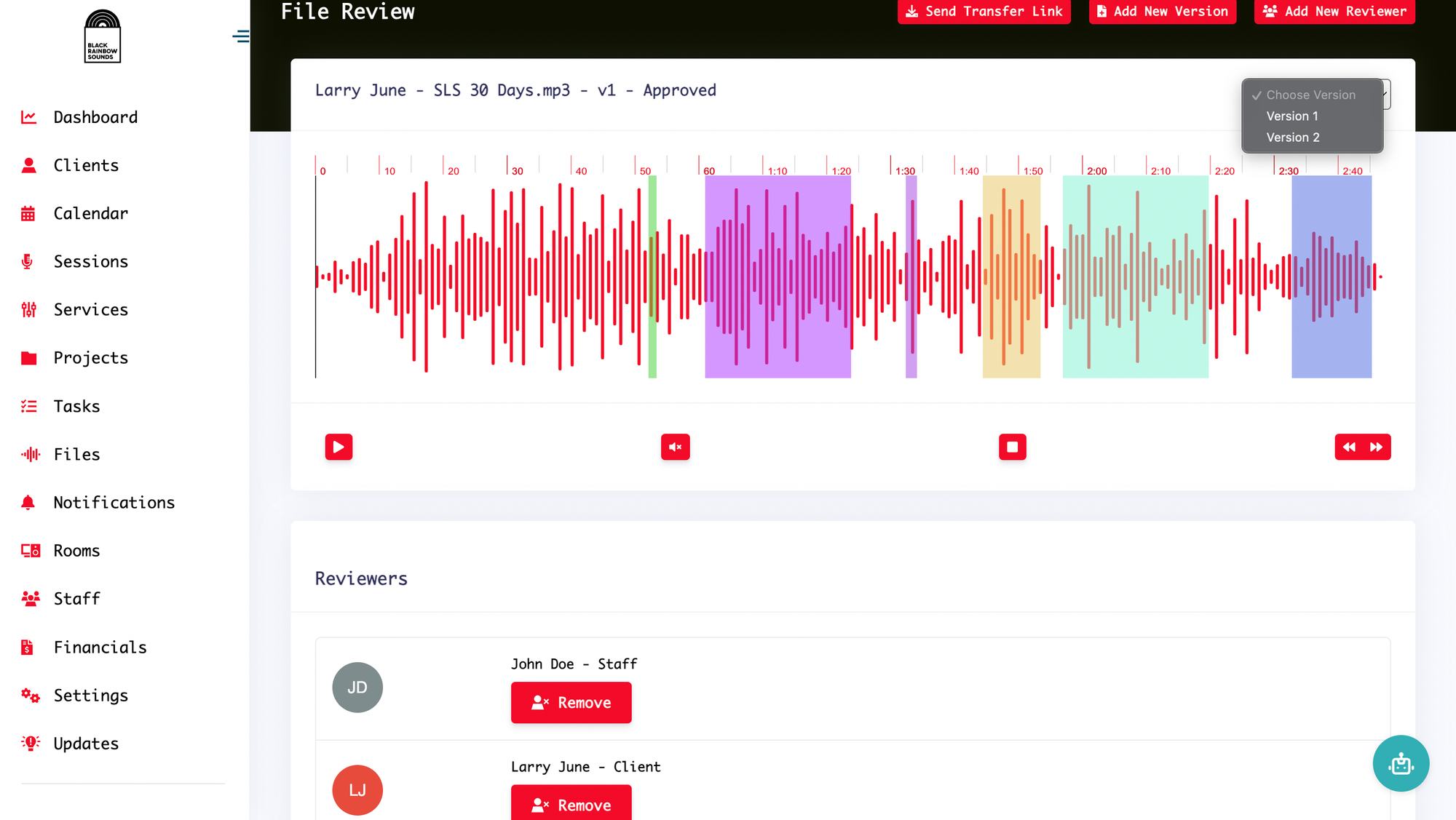Tips on Preparing your Files for Mixing

In this comprehensive guide, we will walk you through the essential steps to prepare your files for mixing.
Whether you are a seasoned pro or just starting out, this guide will provide you with valuable insights and tips to optimize your files for mixing.
Understanding the Role of a Mix Engineer
Before we dive into the nitty-gritty of file preparation, let's take a moment to understand the role of a mix engineer. A mix engineer is responsible for taking all the individual tracks you provide and blending them together to create a cohesive and balanced final mix. They have the technical expertise and trained ears to make your music shine.
To make their job easier and ensure the best possible outcome, it's crucial to prepare your files properly. This includes organizing your tracks, cleaning up your audio recordings, and providing clear instructions and reference tracks. By doing so, you'll not only save time and effort for both yourself and the mix engineer but also set the stage for a successful collaboration.
Preparing Your Project Files for a Mixing
File organization and naming conventions play a vital role in ensuring a smooth workflow between you and the mix engineer. Start by creating a clear and logical folder structure for your project. This will help both you and the mix engineer navigate through the files easily. Use meaningful names for your folders, such as the name of the project, the date, and the version number.
When it comes to naming your individual tracks, it's essential to be consistent and descriptive. Use names that accurately reflect the content of each track, such as "Lead Vocal," "Kick Drum," or "Guitar Solo." Avoid generic names like "Audio 1" or "Track 2," as they can cause confusion and make it harder for the mix engineer to understand your intentions.

Cleaning Up Your Audio Recordings
Before sending your files to the mix engineer, take the time to clean up your audio recordings. This involves removing any unwanted noises, clicks, pops, or background hiss that may have been captured during the recording process. Use audio editing software to carefully edit and clean each track, ensuring that they are free from any distractions or imperfections.
Additionally, make sure to trim the beginning and end of each track to remove any dead space or unnecessary noise. This will help keep your project files concise and focused, making it easier for the mix engineer to work with them.
Consolidating and Exporting Tracks for Mixing
Once your tracks are organized and cleaned up, it's time to consolidate and export them for mixing. Consolidation involves merging multiple audio files into a single track, making it easier for the mix engineer to handle and process them. This step is particularly important if you've recorded multiple takes or layered tracks.
Before consolidating, double-check that all your tracks are properly aligned and in sync. This will ensure that the mix engineer can easily work with your files without any timing issues. Export your consolidated tracks as high-quality WAV or AIFF files, using the appropriate bit depth and sample rate for your project.
Providing Reference Tracks and Mix Notes
To convey your artistic vision and sonic preferences to the mix engineer, it's crucial to provide reference tracks and mix notes. Reference tracks act as a point of reference for the mix engineer, giving them a clear understanding of the sound and vibe you're aiming for. Choose tracks that have a similar genre or sound to your project, and highlight specific elements you'd like to emulate or avoid.
In addition to reference tracks, provide detailed mix notes that outline your intentions for each track.
Include information on desired levels, panning, effects, and any specific creative choices you've made during the production process. The more information you can provide, the better equipped the mix engineer will be to bring your vision to life.
Communicating with Your Mix Engineer
Effective communication is key to a successful collaboration with your mix engineer. Establish clear channels of communication and make sure to provide prompt responses to any queries or requests they may have. Be open to feedback and willing to make adjustments if necessary.
Regularly check in with the mix engineer throughout the process to ensure that you're both on the same page. This will help avoid any misunderstandings or misinterpretations and ensure that the final mix aligns with your vision and expectations.

Common Mistakes to Avoid When Preparing Files for Mix Engineers
While it's important to know what to do when preparing your files, it's equally crucial to be aware of common mistakes to avoid. Here are a few pitfalls that producers often fall into when preparing files for mix engineers:
- Sending incomplete or missing files: Always double-check that you've included all the necessary tracks and assets before sending them to the mix engineer. Missing files can cause delays and disrupt the workflow.
- Using excessive processing: While it's tempting to add effects and processing during the production stage, it's best to leave the majority of the processing to the mix engineer. Provide clean and unprocessed tracks that give the mix engineer the flexibility to shape the sound according to their expertise.
- Ignoring file format and resolution: Ensure that you're using the correct file format and resolution for your project. Different mix engineers may have specific preferences or requirements, so it's important to clarify this beforehand.
- Not providing enough context: Don't assume that the mix engineer knows your artistic vision or intentions. Provide clear instructions, reference tracks, and mix notes to give them a comprehensive understanding of your desired outcome.
By avoiding these common mistakes and following the best practices outlined in this guide, you'll be well on your way to preparing your files effectively and setting the stage for a successful collaboration with mix engineers.
Conclusion: The Benefits of Properly Preparing Files for Mix Engineers
Properly preparing your files for mixing is a crucial step in the music production process. By organizing your tracks, cleaning up your audio recordings, and providing clear instructions and reference tracks, you can ensure a smooth and efficient collaboration.
This not only saves time and effort for both you and the mix engineer but also maximizes the chances of achieving the best possible mix for your music.
So, take the knowledge and insights from this guide, apply them to your own production workflow, and get ready to impress your mix engineer with your well-prepared and optimized files. Happy mixing!


